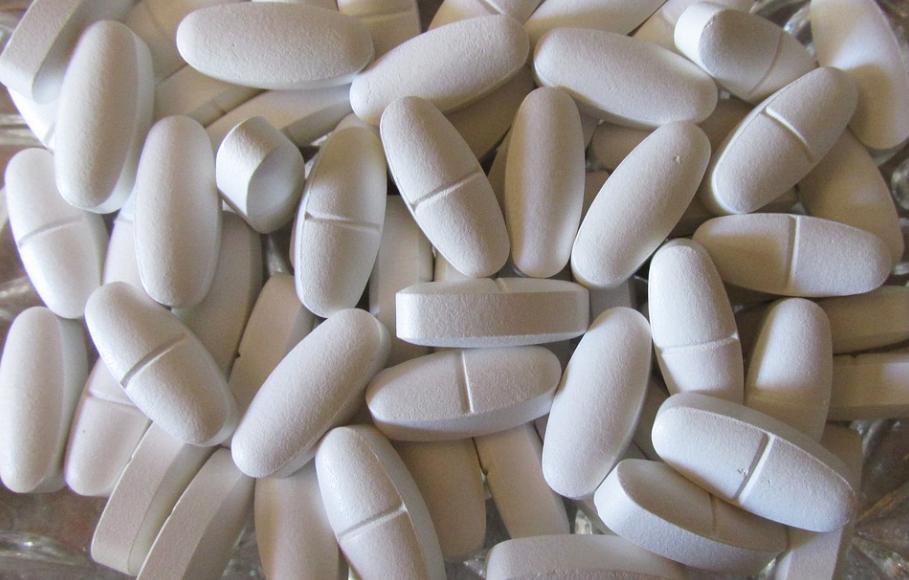When it comes to getting our regular dose of vitamin D, or vitamins in general, there is no one way to get it. Most people usually take supplements for their vitamins, but a report reveals that there are side-effects, especially when taking a lot of supplements.
Express reports that taking too many supplements can lead to frequent urination. The body produces vitamin D when exposed to sunlight, thus this vitamin is nicknamed the “sunshine vitamin,” however, there is a downside to constantly taking a lot of supplements to get the recommended amount of this vitamin. Because vitamin D is responsible for regulating the amount of calcium and phosphate in the body, people who take too much supplements may end up suffering from a condition like hypercalcemia. Hypercalcemia is a condition where there is too much calcium in the blood.
Doctors recommend taking at least 10 micrograms of vitamin D a day and no more than 100 micrograms of vitamin D supplements a day. Infants under 12 months should have no more than 25 micrograms a day as well, while children from one year old to 10 years old should not have more than 50 micrograms. However, for people who suffer from medical conditions, it is best to consult a doctor first on how much vitamin D they can take to be safe.
Pharmacy or drugstore vitamin D supplements are just one of the ways to get the recommended amount of the vitamin especially for those who are at risk of a deficiency. Vitamin D can also be found in some types of food eaten on the daily as well as regular exposure to sunlight. It is important to keep in mind that to prevent the risk of developing skin cancer or sun damage, always wear protective clothing and sunscreen on exposed parts of the body.
As for food, vitamin D can be found in fatty or oily fish such as salmon, herring, sardines and canned tuna, in fortified food products especially dairy products like milk (both soy and cow’s milk), cereal, oatmeal, orange juice, egg yolks, as well as cod liver oil and mushrooms. Red meat also contains some amount of vitamin D.
Image credits: Kratom IQ



 Novo Nordisk and Eli Lilly Cut Obesity Drug Prices in China, Boosting Access to Wegovy and Mounjaro
Novo Nordisk and Eli Lilly Cut Obesity Drug Prices in China, Boosting Access to Wegovy and Mounjaro  GLP-1 Weight Loss Pills Set to Reshape Food and Fast-Food Industry in 2025
GLP-1 Weight Loss Pills Set to Reshape Food and Fast-Food Industry in 2025  Sanofi to Acquire Dynavax in $2.2 Billion Deal to Strengthen Vaccine Portfolio
Sanofi to Acquire Dynavax in $2.2 Billion Deal to Strengthen Vaccine Portfolio  TrumpRx.gov Highlights GLP-1 Drug Discounts but Offers Limited Savings for Most Americans
TrumpRx.gov Highlights GLP-1 Drug Discounts but Offers Limited Savings for Most Americans  Sanofi’s Efdoralprin Alfa Gains EMA Orphan Status for Rare Lung Disease
Sanofi’s Efdoralprin Alfa Gains EMA Orphan Status for Rare Lung Disease  Royalty Pharma Stock Rises After Acquiring Full Evrysdi Royalty Rights from PTC Therapeutics
Royalty Pharma Stock Rises After Acquiring Full Evrysdi Royalty Rights from PTC Therapeutics  AstraZeneca’s LATIFY Phase III Trial of Ceralasertib Misses Primary Endpoint in Lung Cancer Study
AstraZeneca’s LATIFY Phase III Trial of Ceralasertib Misses Primary Endpoint in Lung Cancer Study  RFK Jr. Overhauls Federal Autism Panel, Sparking Medical Community Backlash
RFK Jr. Overhauls Federal Autism Panel, Sparking Medical Community Backlash  Trump Backs Review of U.S. Childhood Vaccine Schedule After Hepatitis B Policy Change
Trump Backs Review of U.S. Childhood Vaccine Schedule After Hepatitis B Policy Change  Novo Nordisk and Eli Lilly Cut Obesity Drug Prices in China as Competition Intensifies
Novo Nordisk and Eli Lilly Cut Obesity Drug Prices in China as Competition Intensifies 





























